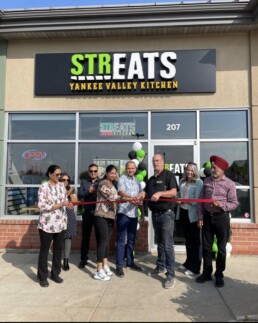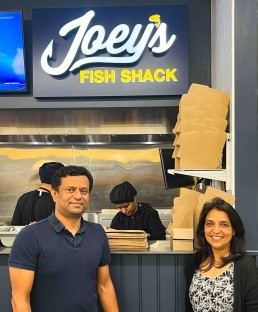The Ultimate Guide to Gathering Authentic Feedback for Your Restaurant
In the competitive restaurant industry, understanding and improving customer experience is paramount. One of the most effective ways to achieve this is through gathering genuine feedback. By leveraging customer insights, restaurants can enhance their services, create better dining experiences, and ultimately boost their reputation and revenue.
Why Customer Feedback Matters
Customer feedback is more than just a measure of satisfaction; it’s a vital tool for continuous improvement. Whether it’s praise or criticism, feedback provides valuable insights into what’s working and what needs adjustment. Addressing concerns promptly can prevent minor issues from escalating and demonstrate a commitment to customer care.
Common Pitfalls in Collecting Feedback
Many restaurants rely heavily on direct feedback from customers during their visit. However, this method often leads to biased responses, as customers may not feel comfortable sharing their true opinions face-to-face. Moreover, feedback collected by staff may reflect their own perspectives rather than the customer’s experience.
Platforms for Gathering Feedback
Online review platforms such as Google, Yelp, and TripAdvisor are critical channels where customers express their honest opinions. These platforms often attract both highly positive and highly negative reviews, providing a broad spectrum of customer experiences. Encouraging more balanced reviews, even those that mention minor issues, can help paint a more accurate picture of your restaurant’s strengths and weaknesses.
A restaurant’s overall rating on platforms like Google or TripAdvisor can significantly impact its success. Studies show that increasing a restaurant’s average rating by just one star can lead to a substantial rise in revenue. This underscores the importance of actively managing your online presence and responding to reviews—both positive and negative.
Strategies for Collecting Constructive Feedback
Beyond public review platforms, implementing structured methods such as mystery dining can yield more detailed and actionable feedback. Mystery diners, who are industry experts posing as regular customers, can provide in-depth reports on various aspects of the dining experience, from service times to menu structure. This professional insight is invaluable for identifying specific areas for improvement.
Engaging with Customers Post-Experience
One common mistake restaurants make is failing to respond to online reviews, especially negative ones. Addressing customer concerns in a timely and empathetic manner not only resolves the issue at hand but also signals to potential customers that you value their input. Often, simply acknowledging a customer’s complaint and offering to discuss it further can turn a dissatisfied customer into a loyal one.
The Role of Social Media in Feedback Management
In today’s digital age, social media platforms are another avenue for collecting feedback. Engaging with customers on these platforms allows you to address issues quickly and publicly, showing your broader audience that customer satisfaction is a priority. Additionally, sharing positive feedback on your social media channels can enhance your brand’s image and attract new customers.
Crisis Management and Turning Negatives into Positives
Sometimes, negative feedback can be leveraged into a positive marketing opportunity. For example, humorous or creative responses to unfair criticism can go viral, drawing attention to your restaurant in a light-hearted way. However, it’s crucial to strike the right balance and ensure that any public response aligns with your brand’s voice and values.
Implementing a Feedback Response System
To effectively manage customer feedback, consider establishing a tiered response system. This system categorizes feedback based on severity, allowing your team to prioritize issues that require immediate attention. Regular training on handling different types of feedback will ensure that your staff can address concerns professionally and constructively.
The Importance of Regular Feedback Audits
Restaurants should regularly revisit their feedback collection methods and customer service standards. As trends and customer expectations evolve, what worked a year ago may no longer be effective. Periodic reviews help ensure that your restaurant continues to meet—and exceed—customer expectations.
The Value of Ongoing Improvement
In the restaurant business, stagnation is not an option. Continually seeking out and acting on customer feedback will help your restaurant stay competitive. By embracing feedback as a tool for growth, you can foster a culture of excellence that resonates with both your customers and your staff.
Conclusion
Customer feedback is a critical component of success in the restaurant industry. By actively seeking out and responding to feedback, implementing structured review processes, and using feedback to inform ongoing improvements, restaurants can enhance their service and create more memorable dining experiences. Remember, feedback is not just a reaction to the past but a roadmap to a better future.
Streats Harvey Kitchen is Now Open in Kelowna, BC!
16 December 2024
Joey’s Fish Shack Wallaceburg: Opening Soon!
6 November 2024
Opening Soon: Streats Kelowna Kitchen
30 October 2024
New Location Opening Soon: Streats Airdrie Kitchen
30 October 2024
Restaurant Marketing Trends for 2024: Boosting Business
13 August 2024









